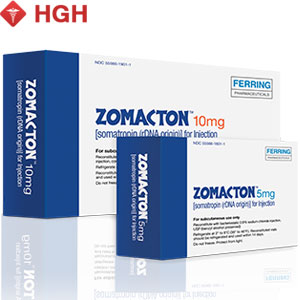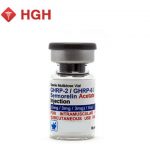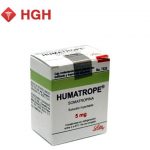 The lack of the main male hormone affects the appearance, sexual opportunities and health of men. How to treat testosterone deficiency?
Testosterone is the main male sex hormone which determines the functioning of the man body. The amount of this hormone influences the appearance, behavior, libido, fertility. What is testosterone deficiency and how to improve testosterone deficiency you can read in this article.
The lack of the main male hormone affects the appearance, sexual opportunities and health of men. How to treat testosterone deficiency?
Testosterone is the main male sex hormone which determines the functioning of the man body. The amount of this hormone influences the appearance, behavior, libido, fertility. What is testosterone deficiency and how to improve testosterone deficiency you can read in this article.
Testosterone deficiency wiki
The main body, which produces testosterone in men, is the testes. A small amount of this hormone is produced by the adrenal cortex. Testosterone deficiency syndrome (hypogonadism) may be congenital or acquired. Congenital deficiency of testosterone is associated with a genetic predisposition and leads to a delay in the sexual development of the boy. Therefore, hypogonadism becomes noticeable at the age of maturity in sexual aspect.
Acquired lack of the hormone occurs when testosterone deficiency has developed after the onset of puberty. It can be caused by the following diseases or conditions that have affected the male hormonal system:
- injury or inflammation of the testicles;
- endocrine glands diseases, varicocele;
- infectious diseases (mumps);
- diseases of internal organs and systems (high blood pressure, kidney disease, obesity, high blood sugar, osteoporosis, high cholesterol);
- physical or psychological trauma;
- the failure of the testes is a common cause of male testosterone deficiency at the age of 40 and older;
- medications may also be the causes of testosterone deficiency.
What causes testosterone deficiency?
- Meals. Giving up meat helps to reduce the production of testosterone. On the other hand, the use of meat that is grown on hormone supplements, and beer, which is rich in phytoestrogens, trigger excessive production of female hormones in the male body.
- Drinking alcohol.
- Overheating of the testicles and close underwear. Prolonged heating, as well as compression, violate the normal operation of this body.
- Lack of the sun. During the research a connection between vitamin d and testosterone deficiency was noticed.
- Lack of other vitamins for testosterone deficiency
- Assessing the impact of these causes and factors helps in treatment of testosterone deficiency.
What is testosterone deficiency
The reason for testosterone deficiency may be associated with both testes and the hypothalamic-pituitary system. Age testosterone deficiency in men is a separate category.
Causes related to abnormalities in the testes
The testicles may be missing or do not function properly as a result of injury or surgery. In rare cases, a man can be born without testicles, testicular defects or improper location of the testicles ( they are not in the scrotum). Testosterone deficiency symptoms in men may also have a genetic origin, such as Klinefelter's syndrome. Inflammation of the testicles (e.g., after mumps) and a number of other diseases can also cause symptoms of testosterone deficiency in men.
Causes associated with the hypothalamic-pituitary system
The hormones produced by the hypothalamus and the pituitary gland stimulate the production of hormones by the testes. If the amount of these hormones is not enough, the testes are not able to function normally. Secretion of hormones by the hypothalamus may be disrupted as a result of a genetic defect (e.g., Kallmann syndrome). Too small weight (due to some diseases, excessive physical exertion or psychological disorders, such as bulimia) may also reduce the activity of the hypothalamus. Furthermore, the reason for testosterone deficiency may be related to pituitary. Pituitary gland testosterone deficiency can be congenital or caused by a pituitary tumor. A number of systemic diseases, drugs, radiation and the presence of environmental toxins are also able to disrupt the functioning of the hypothalamic-pituitary-testes system.
Age symptoms of testosterone deficiency
As with menopause in women, the production of sex hormones in males also decreases with age. In men, however, there is no specific time that is comparable to the menopause, when the male gonads (testes) cease to function, and lose the ability to reproduce. At the moment it is known that there is a slow but steady decline in producing testosterone in the blood with age. On the one hand, the complex processes of aging (in particular, affecting the testicles and hypothalamic-pituitary system) leads to the development of signs of testosterone deficiency. General deterioration of health with age due to diseases (e.g., atherosclerosis) is often an additional factor in the development of this deficit. On the other hand, the symptoms testosterone deficiency has an adverse effect on health and contributes to aging.
Testosterone deficiency symptoms
The clinical picture of androgen testosterone deficiency symptoms can be divided into several groups of symptoms.
Vegetovascular:
- hot flashes,
- increased sweating,
- palpitations,
- cardialgia.
Endocrine disorders:
- obesity
- breast enlargement,
- reduction of hair on the face.
Musculoskeletal:
- a decrease in muscle mass,
- inadequate physical exercise increase muscle mass,
- pain in the bones.
Psychoemotional:
- fatigue,
- mood lability with a tendency to depression,
- impaired memory,
- reduction of creative productivity,
- sleep disorder.
Trophic disorders:
- dry skin,
- the appearance of wrinkles.
Genitourinary:
- frequent urination,
- rapid ejaculation,
- erectile dysfunction
Testosterone deficiency in women
What are the symptoms of testosterone deficiency? When there is a testosterone deficiency in women, the patients have some problems in the functioning of the body. The symptoms of testosterone deficiency in women are: decreased muscle mass, susceptibility to depression, a predisposition to bone softening and long periods of mental fatigue. Female testosterone deficiency significantly reduces the level of libido, resulting in loss of desire for sex, as well as the overall sensitivity of the genitals and the pleasure during sex is reduced. A complete absence of orgasm under testosterone deficiency in females is also quite possible.
Testosterone deficiency in men
Testosterone deficiency in men is caused by a genetic disease, age-related changes or general conditions affecting the amount of testosterone in the blood.
Testosterone deficiency wiki:
Testosterone deficiency in the body occurs with a decrease of its amount to 300 nanograms per deciliter of blood. With such problems the quality of man life greatly deteriorates, since there is a large number of ailments and diseases. Some representatives of the stronger sex notice the following effects of testosterone deficiency: permanent disability and reducing fatigue, decreased physical strength, constant mood swings, tendency to depressed, poor sleep or insomnia, decreased or absent sexual desire, erectile dysfunction and ejaculation, and so on.
Testosterone deficiency in men in middle and old age gives rise to the following diseases: osteoporosis, endocrine disorders, anemia, obesity, kidney disease, occurrence of hypertension, cardialgia, shortness of breath, prostatitis and so on.
Testosterone deficiency in boys and adolescents due to childhood diseases or genetic disorders, leads to a lack of virilization, i.e. insufficient formation of a teenage male pattern. Reduced body hair on a male type is observed, the figure acquires a teenager female shape, reduced shoulder width, reduced amount of muscle mass, body fat is distributed on the body on a female type, increased breasts, voice intonation becomes female, the type of behavior shifts towards female manifestations. In addition, increased bone fragility and susceptibility to osteoporosis, there are endocrine and vegetative-vascular disorders, anemia occurs, serious forms of acne appear, decreased libido and erectile function, infertility is possible, reduced physical strength, mental instability is observed, there is a tendency to depression and so on.
Test for testosterone deficiency
Testosterone deficiency test is carried out in the laboratory. To pass the test for testosterone deficiency, it is necessary to give blood from a vein, which is placed in a test tube. At the same time, there is a registration of patient data (his name, first name, gender and age) takes place. If the patient has already being prescribed some testosterone deficiency treatment, then it should be specified. The results of the analyzes can generally be found within a few hours before treatment for testosterone deficiency.
Blood for determination of testosterone is carried out on blood serum. It is necessary to have an empty stomach, from seven to eleven o'clock in the morning, when the level of testosterone in the blood is maximal. Before passing the test you need to restrict yourself:
- in smoking - do not use cigarettes for an hour before completing the procedure,
- in stressful situations and unrest,
- in physical activities and exercises,
- in various other factors that affect oscillation testosterone.
The level of total and calculated free testosterone are taken into account in the analysis of the test data on the levels of testosterone. These parameters are determined by evaluating the level of total testosterone and globulin that binds sex hormone.
The normal total testosterone in men is 2.6 - 11 ng / ml. The level of free testosterone in men under twenty years is 0.2 - 42.5 N / mL; from twenty to fifty-nine years - 6.6 - 30 x / ml, and over sixty years - 4.9 - 21.6 x / ml.
In women, testosterone is considered normal in the level of 0.7 - 3 nmol / l. The amount of testosterone increases at the time of ovulation and during menopause - decreases. The best time for testosterone deficiency women test is the sixth or seventh day of the cycle.




